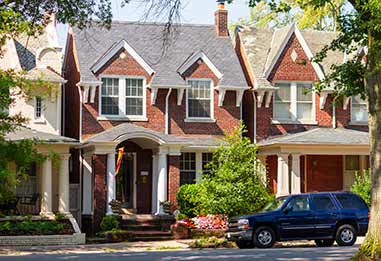
Blog
Blog | 5 min read
January 15, 2020

A few months ago, I was talking with a fellow economic development professional who asked me, why I cared about affordable housing because in his words, “affordable housing isn’t economic development.” In his view economic development is meant to help companies facilitate new job creation, enhance the community’s tax base, and provide opportunities for increasing household incomes. However, what happens when a community is so successful in its economic development efforts that the supply of housing decreases and prices escalate so quickly that jobs and income growth don’t keep up?
Having relocated to the Greater Richmond region from Salt Lake City where I served as the Director of the Department of Economic Development, I have seen firsthand the challenges that may occur when population growth accelerates, and housing prices increase at a rapid pace. The Salt Lake City Mayor and Council were committed to addressing affordability by adopting the city’s first ever housing plan — Grow SLC — laying the groundwork for reallocating funding within the Redevelopment Agency of Salt Lake City (RDA), a division of the Department of Economic Development. The RDA, per state legislation, is required to put 10 percent of new tax growth in the tax increment districts aside for funding of affordable housing. These funds (plus the reallocation) allowed the RDA to invest approximately $44 million in affordable housing over the course of three years. This meant over 2,500 units of affordable housing for all income levels as well as almost 5,000 units of market rate units. In addition, the Mayor and Council held a referendum to increase the sales tax with a portion going toward an ongoing stream of funding for affordable housing.
Why would the Salt Lake City Mayor and Council want to make such a bold investment? Because they felt affordable housing was economic development. In my opinion, there are a few keys to why this is true:
The Partnership for Housing Affordability just released a new study called the Richmond Regional Housing Framework that identifies a deficit of over 29,000 affordable units of housing and covers many of these points. It was developed to “help position the region as a global destination for business investment and as a unique place to call home with a variety of housing options for all.”
The report includes the following goals with priority solutions, outlining responsible partners for each with a plan for measuring success and tracking progress. The goals include:
There are direct correlations between a region having affordable housing and enhanced economic development. This correlation is why I believe affordable housing is economic development. When the Greater Richmond Partnership promotes the Richmond Region to prospective companies, we often cite the region’s competitive cost of housing and our great quality of life. With the continued population growth in the Greater Richmond region, it will be important to be mindful to include affordable housing for all income levels in development plans in order to remain a competitive location for business.